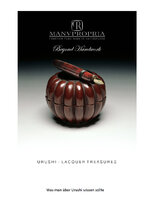Excellent e-book. I enjoyed your dictionary at the end too. Many words or forms I knew and still remembered. It has been 12 years since I returned to the States and haven't used my Japanese much since then. Only occasionally.
An interesting Japanese language item I ran into in the late '80s involved computers. I began my Japanese language study in January 1986. In '89 I was interested in getting a Japanese WaPro. (word processor) But the instructions were in Japanese only, and in Japanese computerese - a specialized language that had not made it into most dictionaries. I needed an English manual, but there was no such thing around. So, I bought a number of English computer magazines in Shibuya and Shinjiku looking for a Japanese OS Computers with English language manual. I found one ad in a Macintosh computer magazine. I was back in the States for 5 months in mid '89 and bought a Mac; I ordered the Japanese OS with English instructions from a company in California. (Backing up to the '60s -in high school in the early '60s, I took typing class, so I knew typing/keyboarding.) The Japanese OS allowed for Romaji (Roman letter) input, or Kana input. Because I knew the standardized English input (QWERTY board), I was quick to be able to use the romaji keyboard to input Kana and Kanji and switch back and forth between English and Japanese Kana.
When back in Japan (Tokyo) I went to a computer club and carried my Mac. A Japanese guy was there with a Toshiba laptop. We compared notes and both of us started typing. He made the comment that I was fast. I thought that was odd, but I knew the Japanese characteristic for compliments to put people at ease - so I didn't really think I was that fast at all. He also said the Mac had more Kanji than his twice as expensive Toshiba.
A few weeks later, a Japanese acquaintance whose son attended the same school as my girls - he heard I had a Mac and was interested in one. I showed him my computer and did some typing; He to did some typing and then said: You are fast with writing Japanese on the computer. I was a little annoyed at the "compliment" but didn't show it. I asked him why he thought I was fast at typing Japanese when he and the other guy could type Japanese naturally?
His Reply: "Y
ou type in Romaji and you know the keyboard; Because of that, you are faster than we are. Japan (in the fall of 1989) does not have a standardized keyboard. In fact there were 4 major keyboard configurations and a few other keyboard configurations for Japanese kana. With no standardization, Japanese teachers are not able to teach keyboarding in their schools like it is in Europe and America". I now understood why they said I was faster, even though I was not as fast as most who knew typing.
I think they have a standard Kana keyboard now. Even in the early to mid '90s, there were still two primary keyboard configurations.
Soon after I learned to use the computer for Japanese writing, I switched my handwritten Japanese studies to computer printed Japanese. My Kanji recognition went up and my handwriting ability decreased. My once a week Japanese teacher was both happy and annoyed. Happy that my Kanji recognition went up, but annoyed that my handwriting ability went down.
Faux pas #1: One other result of using the computer was that I started printing bulletins for our church. At first no one said a thing but after a few months, I was pulled aside and told to change my font script. Basic Font in serif or san-serif was OK, but I was selecting a font that looked like script/handwritten and one that was closely associated with ancient writings. I found out that it was somewhat offensive to write a church bulletin in that font. Some fonts in certain script designs are meant for specific writings and not for others.
faux pas #2 - I lived in the Osaka area from '92-2004. Osaka is famous for its Osaka-ben (dialect). Once, I wrote a note in a bulletin in Osaka dialect and was promptly told it is OK to speak Osaka-ben in certain situations, but do not write in that form for normal communication notes! So, I had to remember to NOT write in Osaka-ben. Later, I had trouble understanding something, and a lady gave a short but simple explanation that was VERY easy to understand. I asked her to repeat it so that I could write it down. She yelled "NO!" Then said: "You don't write that, as it is improper Japanese (Osaka-ben)." Everyone else who heard the conversation laughed. There is a conversational Japanese that is very improper to write - casual conversation and then there is an "in home, family" conversation that is not rude there among family, but very rude in public. My language consultant friend said I was not supposed to know that language!

Japanese language is an interesting and a very "feeling" language, with lots of hidden meaning, much reading between the lines, and lots of subtle silent communication too.
I enjoyed your article.

